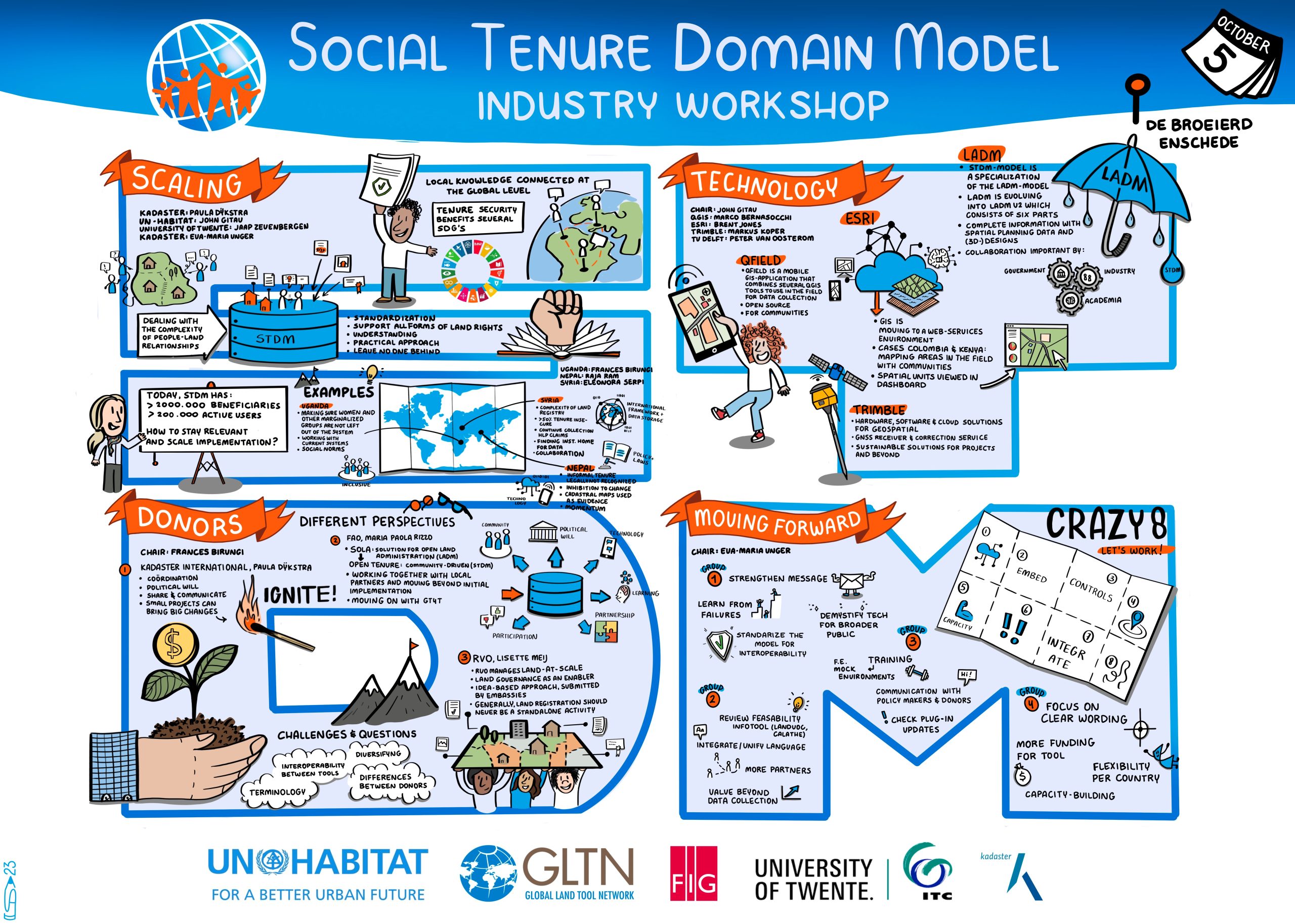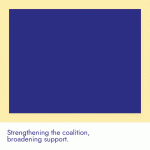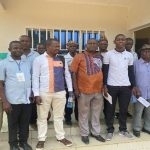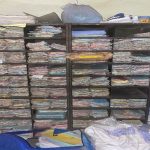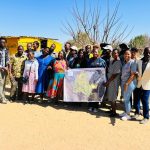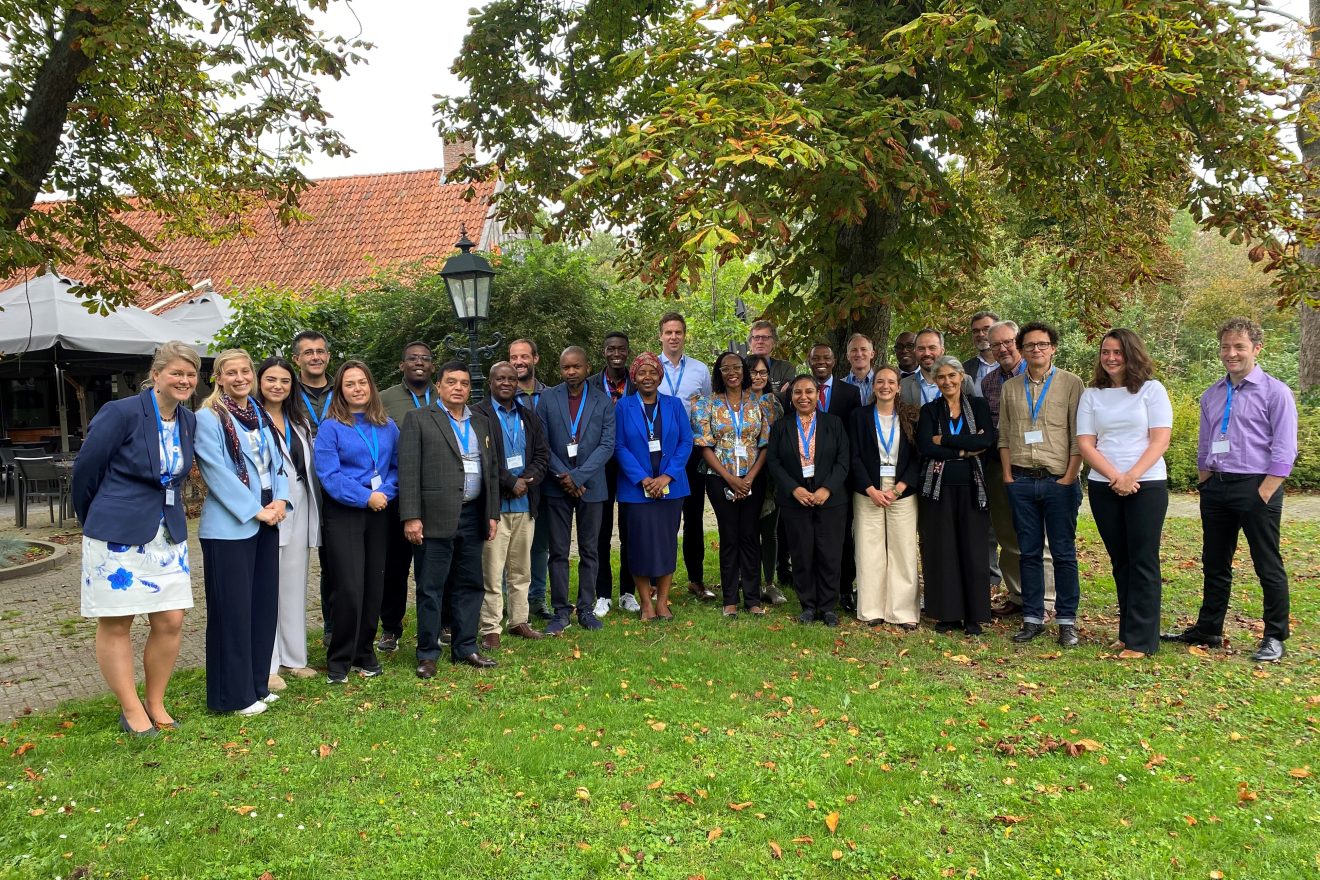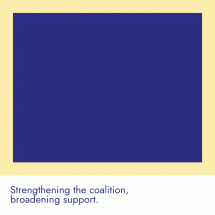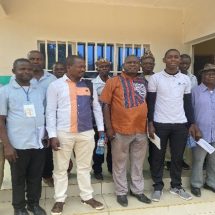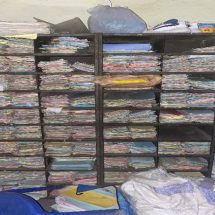The way land is accessed, used, planned, transacted, and developed has a great impact on sustainable development and the overall implementation of the SDGs. With land administration being defined as the process of recording and disseminating information about the ownership, value and use of land and its associated resource, customary and informal tenure are often left out of conventional land administration systems. The Social Tenure Domain Model (STDM) is in this regard a solution to compliment conventional approaches in land administration.
To provide a comprehensive understanding of the evolution and significance of STDM a STDM Industry workshop took place on 5 October 2023 in Enschede, the Netherlands. The workshop brought together policymakers, land administration practitioners, researchers and specifically industry partners to explore the way ahead for STDM. The workshop provided an overview of the various implementations and discussed the opportunities of scaling these pilots and implementation, technological advancements and innovations needed for STDM, funding models and financial sustainability aspects of the STDM initiatives.
The workshop was divided in 4 blocks: Prof. Jaap Zevenbergen (ITC/University of Twente) chaired the block on ‘Scaling’ where country examples from Uganda, Nepal and housing and property rights from Syrian refugees were presented. Within this block policy considerations for successful STDM adoption were discussed as well as obstacles that various stakeholders are facing when implementing STDM.
The block on technology was chaired by John Gitau (UN-Habitat/GLTN) and addressed issues around what technological advancements and innovations are needed in and for STDM as well as the overall importance of standards.
The following block was then chaired by Frances Birungi (UCOBAC) which focused on various funding models to enable a financial sustainability of STDM initiatives. In this session donor agencies as well as implementing agencies shared on what they need from the STDM community in order to fulfil certain requirements and some misunderstandings they are facing when working with different agencies.
The final session was then chaired by Dr. Eva-Maria Unger (Kadaster International) which focused on how to move forward with the experiences and lessons learnt. In this session key challenges and opportunities were discussed and a roadmap for the next phase of STDM – the concept, the model and the information tool was drafted.
All the presentations and discussions around them were captured in the graphic underneath.
See also: Detailed workshop announcement, programme and flyer.
